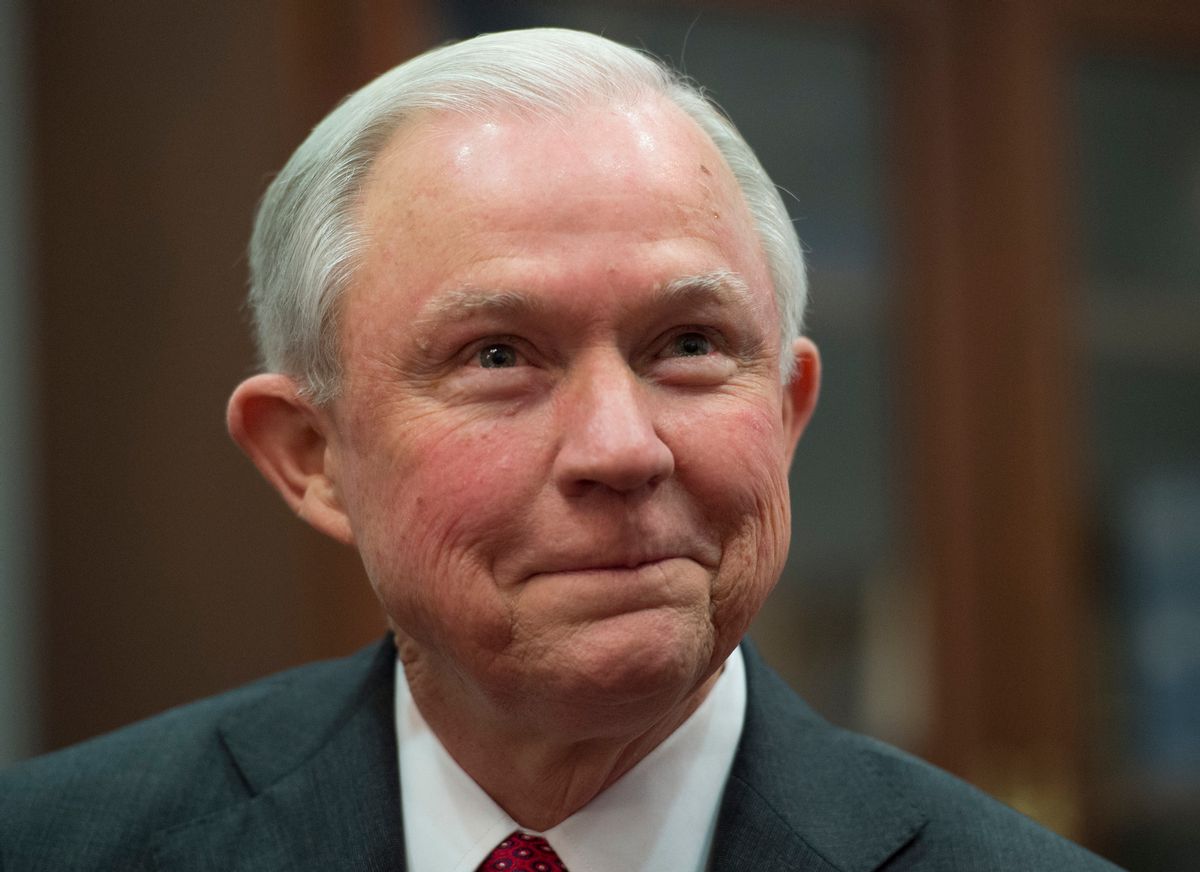Before the Senate Judiciary Committee votes on Jeff Sessions’ nomination to be attorney general, senators should demand an explanation for the sudden bout of amnesia he had at his nomination hearing earlier this month.
When Sen. Patrick Leahy asked him about his past support for imposing mandatory death sentences on people twice convicted of dealing marijuana, Sessions smiled and claimed to have a foggy memory.
“Well, I’m not sure under what circumstances I said that,” he told the committee.
Perhaps this will refresh Sessions’ memory:
In 1996, when serving as Alabama’s attorney general, he promoted H.B. 242, S.B. 291, a state bill to establish mandatory death sentences for a second drug trafficking conviction, including for dealing marijuana. His support for the bill was reported at the time by several local newspapers, as well as The Alabama Lawyer, the Alabama State Bar’s official publication. The Alabama Lawyer described the bill as part of a legislative package that Sessions and then-Governor Fob James proposed to “fix a broken system.”
On Feb. 29, 1996, for example, The Huntsville Times reported that the proposed package of bills to fight crime by “ending parole, eliminating part of the appeals in death penalty cases, and executing people twice convicted of being drug kingpins” had drawn “praise from Attorney General Jeff Sessions.”
The drug bill was advertised as targeting “kingpins,” but to qualify for execution, the defendant merely needed to lead a group of five people and make the minimum wage in drug proceeds. Alabama’s minimum wage was US$4.25 per hour in 1996.
We teach and study death penalty law, but you didn’t need to be an expert to know that the bill to execute drug dealers would “never pass constitutional muster,” as The Huntsville Times then reported. That’s because by 1987, the Supreme Court had completely banned mandatory death sentences. The court ruled that the individual circumstances of the crime and defendant must always be considered. Furthermore, in 1977, the high court had held that even in cases of rape, the death penalty is “grossly disproportionate,” “excessive” and therefore unconstitutional.
Despite Sessions’ support, the Alabama bill never passed. Presumably, the Alabama legislature had a better understanding of wise policy and the Constitution than their attorney general did.
Making a broken system worse
At his nomination hearing, Sessions said that he currently does not support mandatory executions for drug trafficking. But the fact that he once supported it in direct violation of established constitutional law is deeply troubling, especially in light of his direct knowledge, as Alabama attorney general, of the prosecutorial misconduct, racial bias and systematically weak defense lawyering that permeated the state’s capital system. As the state’s top attorney between 1995 and 1997, Sessions sought to uphold more than 40 death sentences, even in the most questionable circumstances.
For example, Sessions knew that during trial, prosecutors had hidden DNA-related evidence from Larry Padgett that pointed to his innocence. Yet Sessions still tried to convince the Alabama Supreme Court to uphold Padgett’s death sentence. Thankfully, Sessions was unable to persuade Alabama’s highest court. Padgett was exonerated at his second trial.
Sessions also worked to uphold the death penalty against defendants who’d received grossly inadequate legal representation, such as Jimmy Lee Dill. At the guilt phase of Dill’s trial, his lawyers didn’t call a single witness. They thus failed to present evidence that the victim died due to improper medical care, more than nine months after Dill shot him during a drug deal gone awry. The attorneys also failed to submit mitigating evidence at sentencing, telling the judge that “we were just blank on submitting it.” Had they tried harder, the attorneys would have found powerful mitigating evidence: Dill was intellectually disabled and had been sexually abused as a child, according to Bryan Stevenson, the renowned public interest lawyer who took on his case a month before he was executed in 2009.
Dill was represented at trial by court-appointed lawyers whose compensation for out-of-court preparation was capped at $1,000 by Alabama law. This is very low pay given the time-intensive nature of capital defense work. A study of federal capital trials in the 1990s found that defense attorneys spent an average of 1,480 out-of-court hours preparing death penalty cases.
As Alabama attorney general, Sessions could have sought reforms to address the glaring flaws in his state’s capital system. Instead, he chose to promote policies such as executing small-time drug dealers, and reducing death penalty appeals in a state where judges were already overriding jury decisions against the death penalty.
Sessions’ purported forgetfulness at his nomination hearing can be explained in two ways.
One explanation is that he lied under oath and actually remembered supporting the bill. Indeed, Sessions also may have been reminded by a New York Times op-ed we published the day before his hearing, which highlighted his support for the bill.
Alternatively, President Trump’s pick for attorney general really did forget promoting the legislation. This possible explanation is perhaps more frightening: that Sessions couldn’t recall advocating to kill drug dealers would suggest that he didn’t give much thought to backing such an extreme and unlawful policy.
At the end of the day, we need an attorney general who is trustworthy, understands the demands of the Constitution and respects them, and has good judgment on criminal justice enforcement policy. The record of Jeff Sessions as Alabama’s attorney general and his current evasiveness about his prior support for a mandatory death penalty for marijuana dealers raises concerns on all these grounds.
![]()
John Donohue, C Wendell and Edith M Carlsmith Professor of Law, Stanford University and Max Schoening, Law Student, Stanford University



Shares